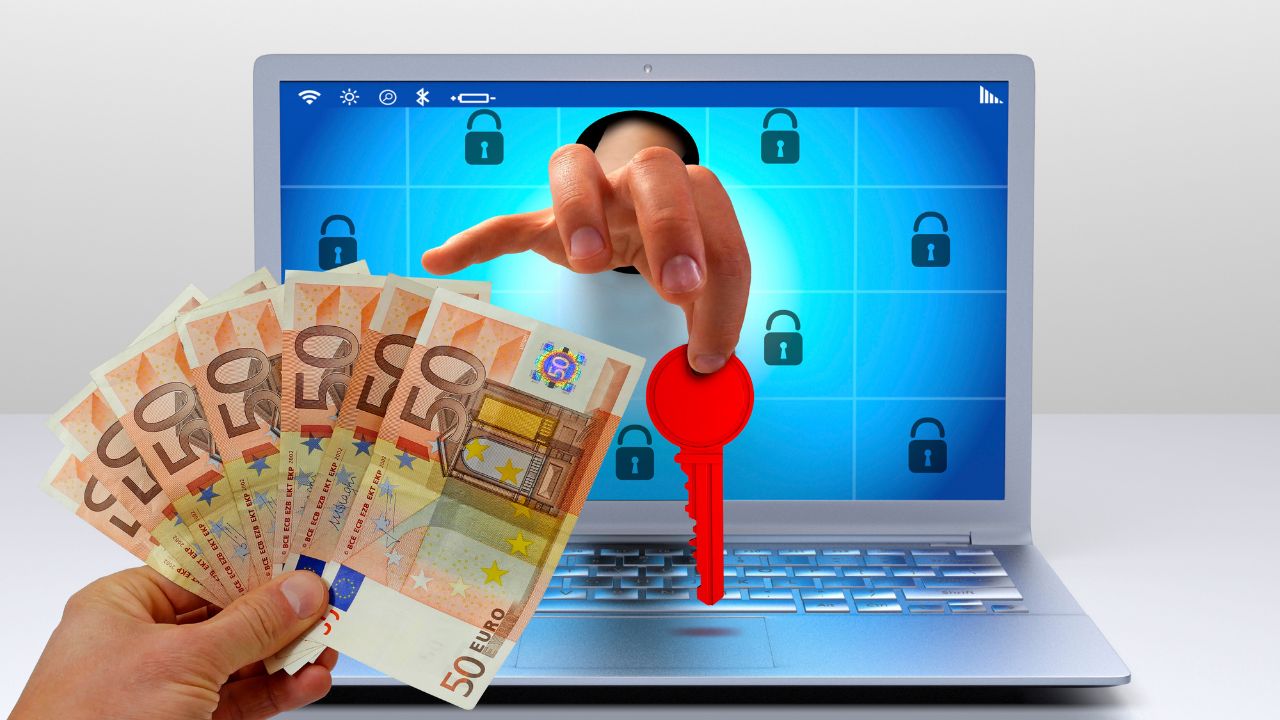
Amidst the growing threat of cyber attacks, businesses find themselves at a critical juncture: deciding whether to pay ransoms to hackers or take a stand against cyber extortion. This pivotal decision aligns with global efforts led by the UK, Singapore, and the U.S.-led alliance. In the ensuing discussion, we’ll delve into ten compelling reasons why abstaining from ransom payments not only supports these global initiatives but is also paramount in the ongoing battle against cybercrime.
Ransomware attacks pose a significant peril to businesses, effectively barring access to their systems and, in severe instances, leading to permanent closures. Confronted with these risks, businesses often contemplate the option of paying hackers to recover their data. However, as we’ll elaborate in this post, the general consensus is a resounding no. Unless there is no alternative for survival, businesses should refrain from paying ransoms. Here are 10 reasons why your company should not pay ransom to hackers:
1. Global Initiatives Against Ransom Payments
-
International Consensus by the Counter Ransomware Initiative (CRI)
Members of the CRI, including influential nations like the UK and Singapore, have collectively pledged not to use central government funds for ransom payments. This joint statement signifies a global consensus against financially supporting cybercriminals through ransom payments.
-
U.S.-Led International Counter Ransomware Initiative
The U.S.-led alliance involving forty countries plans to sign a pledge, committing to never pay ransoms to cybercriminals. This initiative aims not only to discourage ransom payments but also to collaboratively work towards dismantling the funding mechanisms that sustain hackers globally.
2. No Guarantee of Data Integrity
Many ransomware victims often operate under the assumption that paying the demanded ransom will ensure the restoration of access to their data and systems, a process that proves successful in many instances. However, a significant number of cases reveal a harsh reality: organisations, despite paying the ransom, find that the decryption key provided is either ineffective or the retrieved data remains unusable.
Despite the backing of international initiatives, ransom payments provide no assured path to data recovery, intensifying the apprehension surrounding the possibility of irreparable data loss.
3. Financial Fuel for Criminal Enterprises
Paying ransom may get your data back, but that money funds more cybercrime. Attackers use it to create advanced ransomware, leading to more cyber threats. Global efforts stress that paying unintentionally supports criminal growth and worsens the overall cyber threat situation.
4. Maintaining Ethical Integrity
Aligning with global anti-ransom efforts helps companies maintain their ethical reputation and avoid compromising with criminals, preserving trust and reputation. It’s a principled stance that safeguards a company’s standing in the eyes of its stakeholders.
5. Legal and Regulatory Consequences
The global stance against ransom payments reinforces the legal and regulatory consequences companies may face, regardless of their geographical location, emphasising the need for adherence to international laws.
6. Perpetuating the Ransomware Industry
Ransomware payments can fuel innovation in the malware industry. As threat actors persist with basic ransomware tools, a noteworthy trend emerges with some adopting highly sophisticated malware, exemplified by the BlackCat gang’s recent advanced ransomware tool. This evolution underscores the interconnected nature of global cyber threats and reinforces the urgency for unified international efforts against ransom payments.
7. Increased Likelihood of Repeat Attacks
Many organisations, lacking data backups for recovery or seeking to avoid operational disruptions, often succumb to ransom demands. However, security experts caution against this practice, emphasising that paying attackers not only fails to deter further attacks but also heightens the risk of becoming a repeat target. Threat actors perceive a company that has paid once as more likely to pay again in subsequent attacks, as highlighted by both the CRI and the U.S.-led alliance.
8. Neglect of Cybersecurity Improvement
Amid the worldwide effort to discourage ransom payments, it becomes evident that emphasising cybersecurity improvement, rather than depending on short-term reactive measures, is crucial for long-term resilience against evolving cyber threats. This strategic focus aligns with the global commitment to break the cycle of ransom payments and fortify collective defences in the digital realm.
9. Undermining Collaborative Efforts
Aligning with international initiatives encourages companies to actively participate in collaborative efforts, sharing threat intelligence, and reporting incidents to law enforcement for a united front against cybercrime.
10. Strategic Focus on Long-Term Resilience
By adhering to international pledges against ransom payments, companies reinforce the strategic imperative to prioritise long-term resilience over short-term concessions, contributing to a more secure digital landscape globally.
Conclusion
In conclusion, the synergy between these global initiatives and the existing reasons underscores the urgent need for a unified, principled stance against paying ransoms, emphasising the shared responsibility in safeguarding the digital realm from cyber threats. The collaboration of nations against ransom payments reflects a global commitment to breaking the cycle of cybercrime and promoting a secure digital landscape for all.
For your further reading about ransomware:
*This article has been published on e27.co on November 29, 2023
Protect your organisation from cybercrime and cyberattack today with just one click!
See our pricing here and request a demo to understand further.
You can also contact our sales to help you choose the right cybersecurity services for your business.

Written by:
Fanny Fajarianti (Performance Marketing). Experienced digital marketer in the information technology and services industry.
Share this post
Related Posts

5 Ways ArmourZero DevSecOps Simplifies Security for DevOps
- 02 May 2024
- By:Fanny Fajarianti
- Category: ArmourHacks
Discover how ArmourZero ScoutTwo, the AI-powered unified DevSecOps platform, simplifies security for DevOps. Let ScoutTwo empower your development life cycle.

Earth Day: The Connection of Cybersecurity and Sustainability
- 22 Apr 2024
- By:Fanny Fajarianti
- Category: ArmourHacks
Uncover the link between Earth Day and Cybersecurity, promoting sustainability through data protection and environmental stewardship. Let’s secure a greener future.

What is DevSecOps? Definition & Best Practices for Tech Industries
- 18 Apr 2024
- By:Bernadetta Septarini
- Category: ArmourHacks
Learn about DevSecOps, principles, and best practices for the tech industry. Integrate security seamlessly into software development and enhance quality.

Safeguarding Your Organisation During the Hari Raya Holiday
- 09 Apr 2024
- By:Bernadetta Septarini
- Category: ArmourHacks
Protect your organisation from holiday cyberattacks during Hari Raya. Learn more about the risks and best practices for holiday security with ArmourZero.

